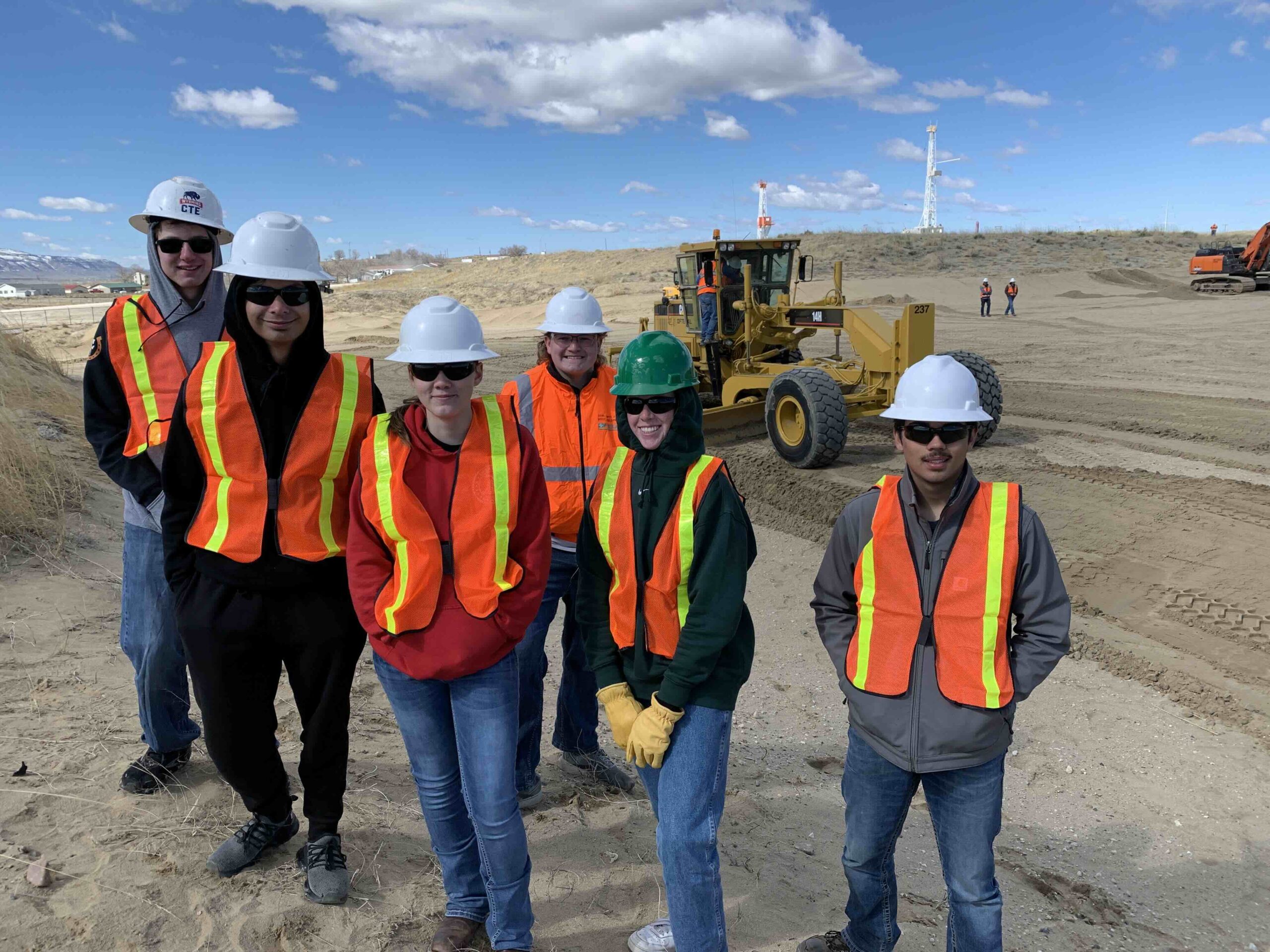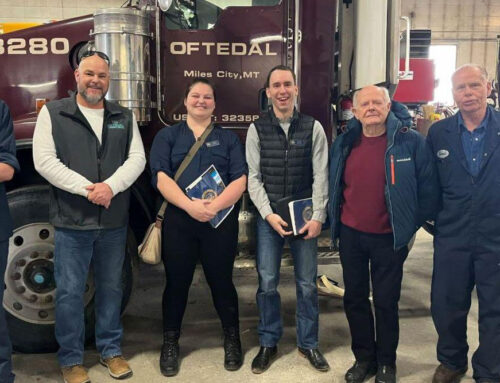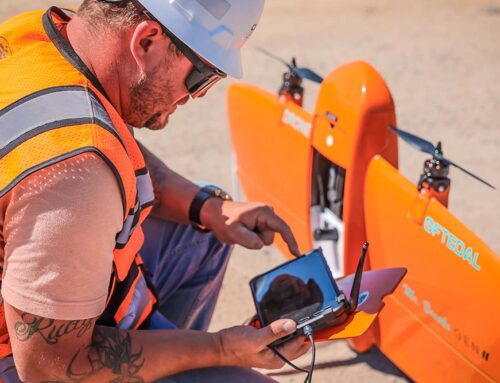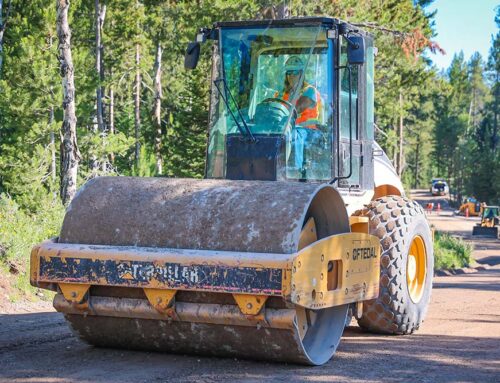It’s no secret that the construction industry has been dealing with a shortage of construction workers for many years, and as Baby Boomers continue to retire, replacing these workers with the next generation of skilled tradesmen is crucial to not only maintain current infrastructure but to expand and build future communities. It’s also important to give young men and women the opportunity to build careers in the trades—solid, good-paying careers that can support families in tough economic times.
At Oftedal, we are doing our part to help develop talent and build the construction workforce in our community through our annual Heavy Civil Career Day and by partnering with Casper Community College to develop a nine-month certificate course in Construction Staking and GPS.
“We strive to support the communities in which we live and work. A big part of giving back to the community involves providing opportunities for young people to build their futures,” explained Shawn Coffin, HR Director. “We are pleased with the joint effort between Oftedal and Casper College, to develop a Construction Staking and GPS certificate course. In addition, we’ve enjoyed our relationship with local school districts in Wyoming to offer young students the opportunity to explore the trades through our spring heavy-civil career day. While workforce development is critical for the construction industry, it is also a key in shaping the lives of our young people and, in turn, helping our communities thrive.”
Heavy Civil Career Day
Our annual Heavy Civil Career Day, which is scheduled for April 30th at AGC of WY offices in Casper, gives students from the local school districts an opportunity to get up close and personal with construction equipment and to learn about different careers in construction and related trades. “This is a great opportunity—and a fun day—for students to learn about the different careers in the trades and to get a feel for some the equipment that is used,” said Matt Otterby, Oftedal Vice President and Operations Manager.
On Heavy Civil Career Day, we bring in a slew of equipment which we set up in several stations in which students can learn about the trade and the equipment that is used for it. We typically set up stations highlighting contractors, plumbing, electrical work/electricians, and specific equipment like GPS technology that is used to survey and map construction sites.
Casper College Construction Staking and GPS Certificate Program
We partnered with Casper College, one of the largest and most comprehensive community colleges in Wyoming, to develop this new, nine-month certificate program that will give students a competitive advantage by teaching them a technical skill that they can use to get a job in construction and other industries. We worked with the college to help develop the curriculum, create recruiting videos, and two of our team members will serve as adjunct professors in the beginning stages of the program.
Construction staking involves reading a set of engineered plans for roads, streets, infrastructure systems, and the like and then using GPS equipment to stake important points (sticking stakes in the ground) throughout the construction site. It is a critical step in the construction process, helping companies to move from plans to construction.
Staking can also help to identify potential issues prior to the start of construction. This can save construction companies time and money, allowing them to adjust/correct the building plan before construction starts.
Casper College students who wish to further their education beyond the construction staking course can stack the certificate with other courses at the college, such as engineering technology, construction technology, or construction management.
These two projects—Heavy Civil Career Day and the Casper College Construction Staking and GPS Certificate Program—are part of Oftedal’s mission to feed the industry with skilled people and our goal of shaping the future through community stewardship. We are proud of both initiatives and welcome new skilled tradesmen into the local workforce.






